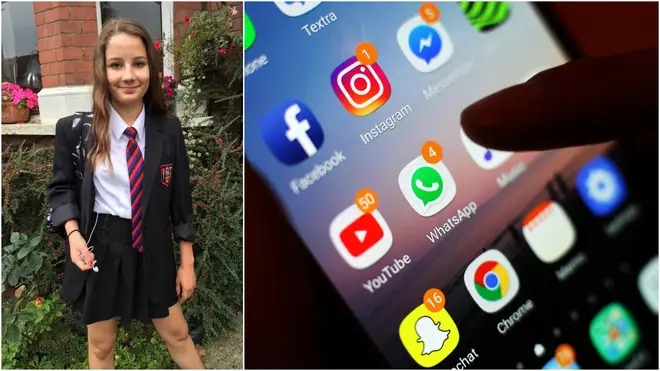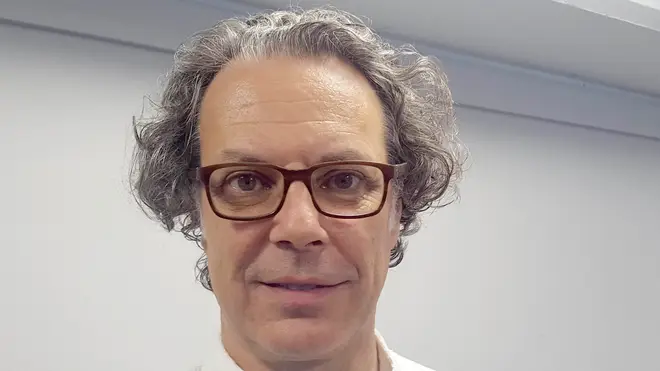
Iain Dale 7pm - 10pm
17 January 2020, 07:29

The father of a girl who took her own life has blamed social media for helping to kill his daughter - as he backed a report calling for companies to share data and pay towards research into the technology's potential harms.
14-year-old Molly Russell died just days before her birthday in 2017 after viewing graphic self-harm and suicide material on Instagram.
In a report by the Royal College of Psychiatrists points to evidence that increased social media use may result in poorer mental health, particularly in girls.
The forward to the report was written by Molly's father, Ian who spoke of the urgent need for greater action, emotionally he described the "wrecking ball of suicide" that "smashed brutally" into his family, blaming "pushy algorithms".
He said of Molly's social media accounts: "Among the usual schoolfriends, pop groups and celebrities followed by 14-year-olds, we found bleak depressive material, graphic self-harm content and suicide-encouraging memes.
"I have no doubt that social media helped kill my daughter."

In its reports, the Psychiatrists body said a proposed 2% levy on the UK revenues of major tech companies does not go far enough.
Instead, it wants the so-called "turnover tax" to apply to international turnover and for some of the money from it to be used for mental health research.
Mr Russell also detailed one of Molly's final notes which described how she felt "with heart-breaking clarity".
"I'm the weird sister, quiet daughter, depressed friend, lonely classmate," she wrote.
"I'm nothing, I'm worthless, I'm numb, I'm lost, I'm weak, I'm gone. I'm sorry. I'll see you in a little while. I love you all so much. Have a happy life. Stay strong xxx."
While welcoming the UK Government's White Paper on online harms, the College's report calls for an independent regulator with powers to be able to establish a protocol for the sharing of data from social media companies with universities for research, such as behavioural data.
Report author Dr Bernadka Dubicka warned algorithms “seem to push more and more harmful content” once it is seen.
She claimed it was an increasing problem: "I am seeing more and more children self-harming and attempting suicide as a result of their social media use and online discussions.
"We will never understand the risks and benefits of social media use unless the likes of Twitter, Facebook and Instagram share their data with researchers.
"Their research will help shine a light on how young people are interacting with social media, not just how much time they spend online.
"Self-regulation is not working. It is time for Government to step up and take decisive action to hold social media companies to account for escalating harmful content to vulnerable children and young people."
Facebook said: “We are already taking steps recommended in this report. We remove harmful content from our platforms and work with groups such as the Samaritans to develop guidelines.”
A Government spokesman said: "We are developing world-leading plans to make the UK a safer place to be online. This includes a duty of care on online companies, overseen by an independent regulator with tough enforcement powers, to hold them to account.
"The regulator will have the power to require transparency reports from companies outlining what they are doing to protect people online. These reports will be published so parents and children can make informed decisions about their internet use."